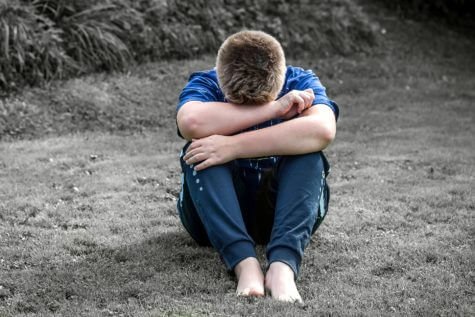CASTELLON, Spain — Teachers and parents alike dream of a classroom where all children are welcomed for play without ever being told by a peer to “just go away.” When it comes to childhood rejection, typically it’s the behavior of the rejected child that’s looked at to figure out what he or she was doing to invite rejection. However, a new study finds that the reason behind the antisocial behavior often lies in the hands of the child doing the rejecting.
Researchers from Jaume I University and Universidad Pablo de Olavide in Spain turned the lunch tables and interviewed the kids doing the rejecting instead of focusing on the child left out.

“We find that the rejected child’s behavior does not lead directly or inevitably to rejection,” says Francisco Juan García Bacete, a professor in the Department of Developmental, Educational and Social Psychology and Methodology at Jaume I University, in a news release. “Instead, what actually leads to rejection are the rejecters’ interpretations of the child’s behaviour, and whether they think it will have a negative impact on themselves or their social group.”
García Bacete and his co-authors surveyed hundreds of first-and-second-grade students from an urban public school in Spain. The researchers asked the kids to describe their reasons for disliking their classmates. Among the 2,934 responses, the children used reasons such as: “I don’t like playing football,” “He’s boring,” “He’s new,” and “She cheats” — quite logical in the minds of 5-7 year olds.
Some of the kids couldn’t even put a finger on a reason for their rejecting.
A method called “The Grounded Theory” was used to conduct these interviews. With Grounded Theory, researchers can create categories based on the data they collect.
“Grounded Theory starts from the reasons provided by the children and, by constantly comparing them, categories emerge that explain differences between the motives for rejection,” explains García Bacete. “So rather than forcing the data to be grouped under preconceived headings, we let the data speak for itself.”
Seven categories of rejection developed from analyzing each reason. Most of the categories related to the behavior of the rejected child (like most previous studies have focused on) such as dominance, aggressiveness, problematic social and school behaviors and disturbance of well-being. Some of the reasons in these categories would sound like, “He makes the teacher angry,” or “She hits me.”
It’s important to note that some of these reasons were influenced by peers who were present when the rejection took place. In such an instance, a reason could be, “I don’t like their games.”
However, by using the Grounded Theory method, the researchers revealed two new categories of reasons that are usually not considered although they make sense: preference and unfamiliarity. Preference has to do with children referring to what they like and don’t like to make their decision about choosing a friend. Unfamiliarity includes hesitation to build a new relationship with someone they don’t know. It’s self-protection.
The takeaway: There isn’t one reason (or child) to blame for rejection. Sometimes it’s because of the rejecter’s own personal reasons and sometimes it’s because of how the rejected kid comes off. Kids are blunt and are still learning social skills, which is why teachers, adults, parents and friends can all be teachers of empathy, how to recognize “stop” signals and learning ways to approach one another.
“This research highlights the importance of teaching children how to be aware of and tackle negative reputations, stereotypes and prejudices, as well as understanding the consequences of their behaviour on themselves and others. Positive relationships should be encouraged – you should respect others, not just your friends,” says García Bacete.
The full study, “Understanding Rejection between First-and-Second-Grade Elementary Students through Reasons Expressed by Rejecters” was published in the journal Frontiers in Psychology.
